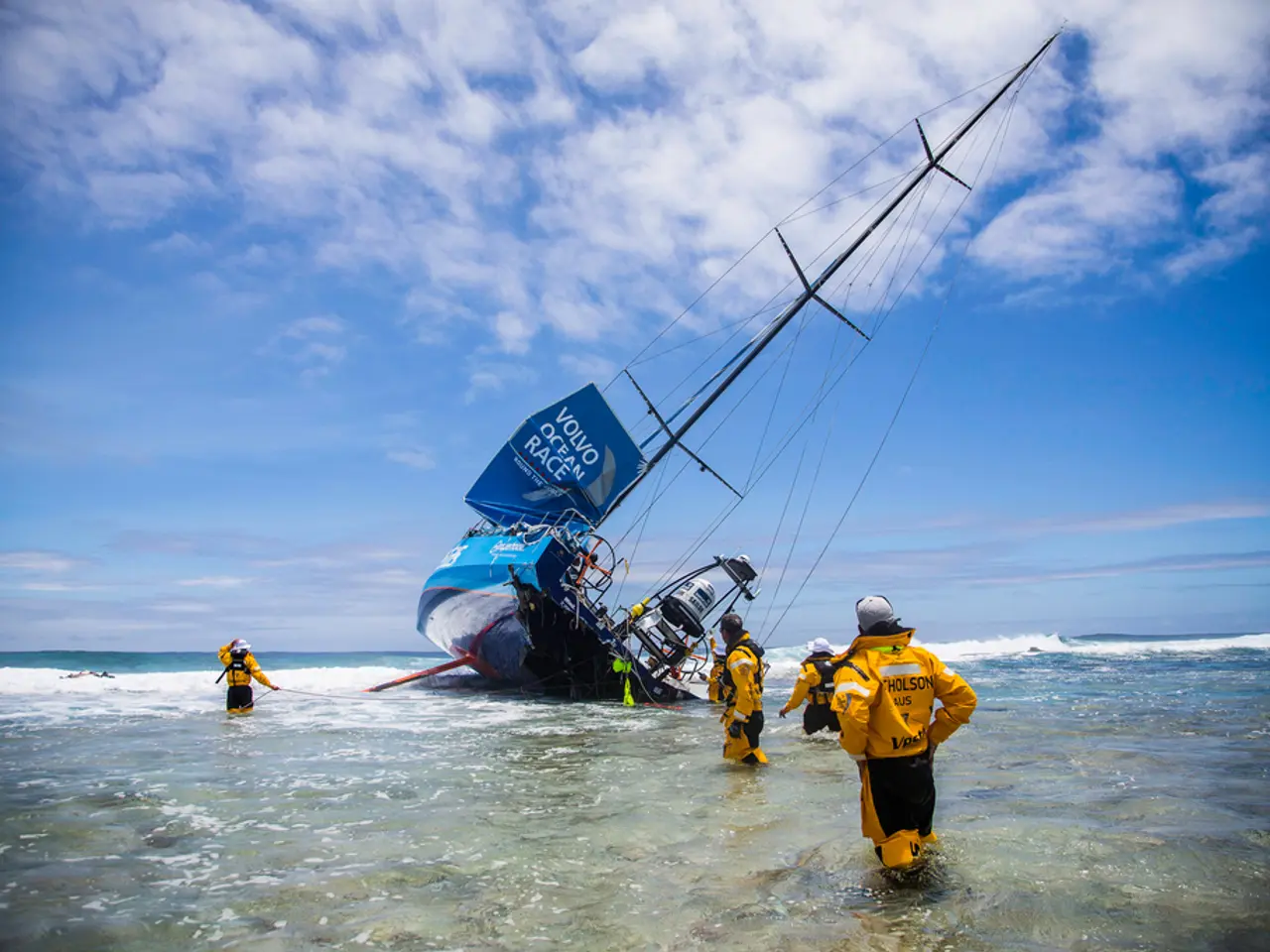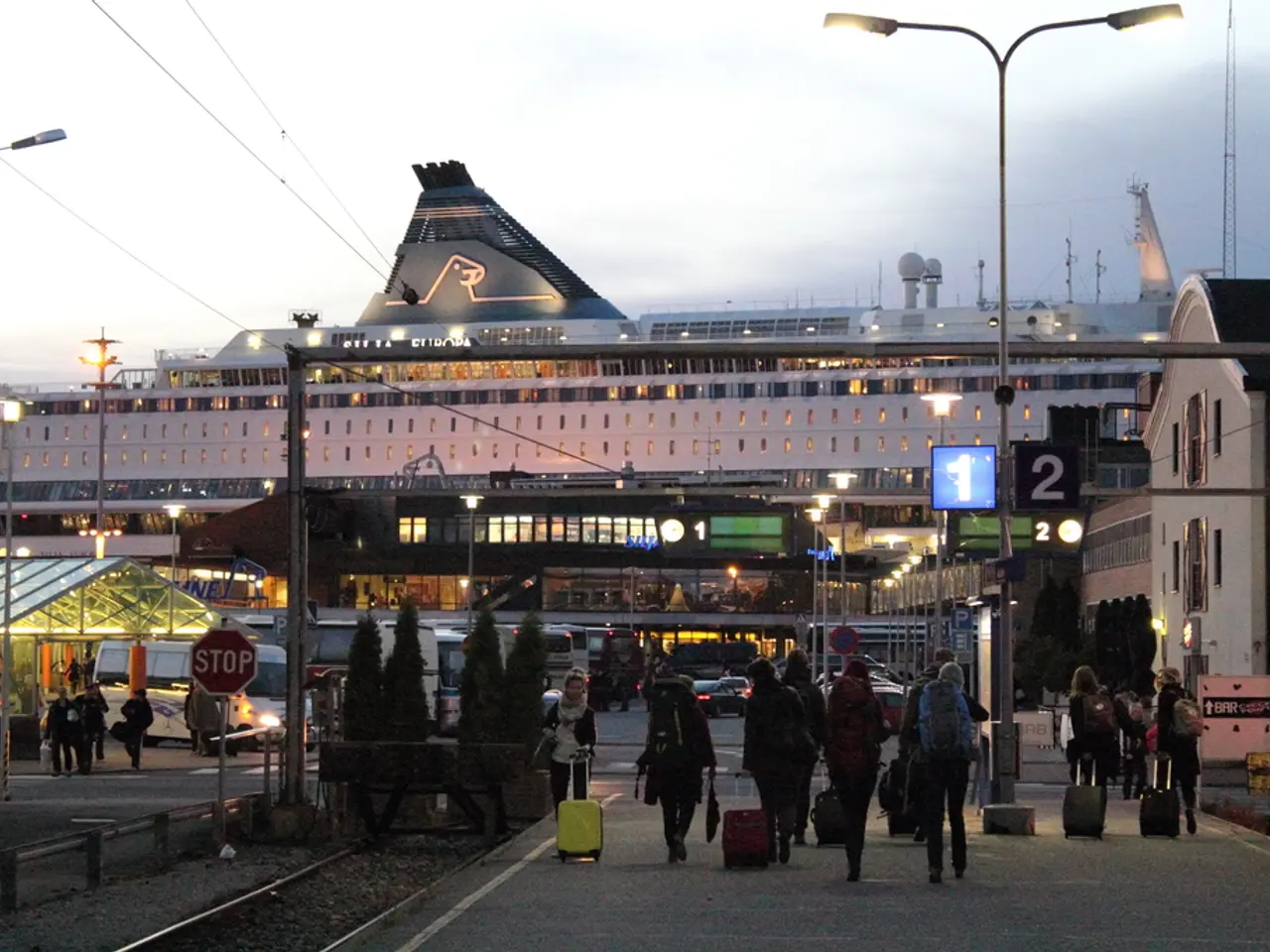Reduction in Aid: Government Scales Back Financial Support for Mediterranean Sea Rescue Operations
The Federal Government Scraps Funding for Civilian Mediterranean Sea Rescue Mission
The German government has made headlines for pulling the plug on its commitment to funding civilian sea rescue in the Mediterranean. The Foreign Office, under Minister Annalena Baerbock (Greens), had previously supported sea rescue efforts with an annual contribution of up to €2 million, and also distributed almost €900,000 to five organizations at the beginning of this year, as reported by the Foreign Office and various news agencies. This funding will no longer be extended to civilian aid organizations like Sea-Eye, SOS Humanity, Sant'Egidio, and others.
Gorden Isler, chairman of Sea-Eye, has expressed dismay, stating, "We've been filling the gap in the Mediterranean for ten years, a gap that should be closed by European states, including Germany." Now, Sea-Eye may find itself tied to the dock even in critical rescue situations.
Controversial Budgetary Decision
The government's decision to scrap funding has been met with widespread criticism. Critics argue that pulling the plug on sea rescue initiatives encounters the needs of those seeking safe passage, exacerbates the humanitarian crisis in the Mediterranean, and neglects our humanitarian duties.
The Union has been a consistent critic of sea rescue spending, alleging that rescue organizations help facilitate irregular migration to Europe by inadvertently collaborating with smuggling groups. "Rescue operations should never be mistaken for an enabling force for human traffickers," said current Foreign Minister Johann Wadephul (CDU) in 2023[1].
A Knock-on Effect: The Future of Sea Rescue?
This funding cut has sparked concerns among sea rescue organizations. Sea-Eye warned that the lack of funding threatens their ability to continue rescue operations, as emergencies at sea continue to unfold[1][2]. European Parliament member Jamila Schäfer (Green Party) emphasized that cutting rescue funding will not deter migration but instead make escape routes more perilous. Schäfer argued, "Sea rescue is not a luxury—it's a humanitarian duty. We pay a fire department to save lives on land; we shouldn't let people drown at sea."
Increasing political hostility towards rescue operations in countries like Italy, where hard-right policies have limited NGO activities, only amplifies the risks migrants face and the operational challenges for rescue groups[4]. As a result, maritime rescue organizations advocate for a fully funded, coordinated European Union sea rescue program with significantly greater resources[4]. Without investment in sea rescue missions, the future of many lives may hang in the balance.
Sources:1. CDU Politician Wadephul Criticizes Sea Rescue in 20232. Sea Rescue Funding Cut Threatens Operations, Critics Say3. Foreign Office Confirms Budget Cut for Sea Rescue4. NGOs Advocate for EU Sea Rescue Program5. European Parliament debate on migration and sea rescue funding
The government's decision to halt funding for sea rescue missions has resulted in heated debates in the realm of general-news, with critics contending that this move negates the needs of those seeking safe passage and exacerbates the humanitarian crisis in the Mediterranean. The political apathy towards rescue operations, as exemplified by the recent funding cut, has raised concerns among migration activists, who argue that this approach merely makes escape routes more hazardous and does not deter migration.
The controversial budgetary decision has significant repercussions for sea rescue organizations, such as Sea-Eye, as they may struggle to continue their vital operations in critical rescue situations, posing a question mark over the future of many lives in the Mediterranean.







